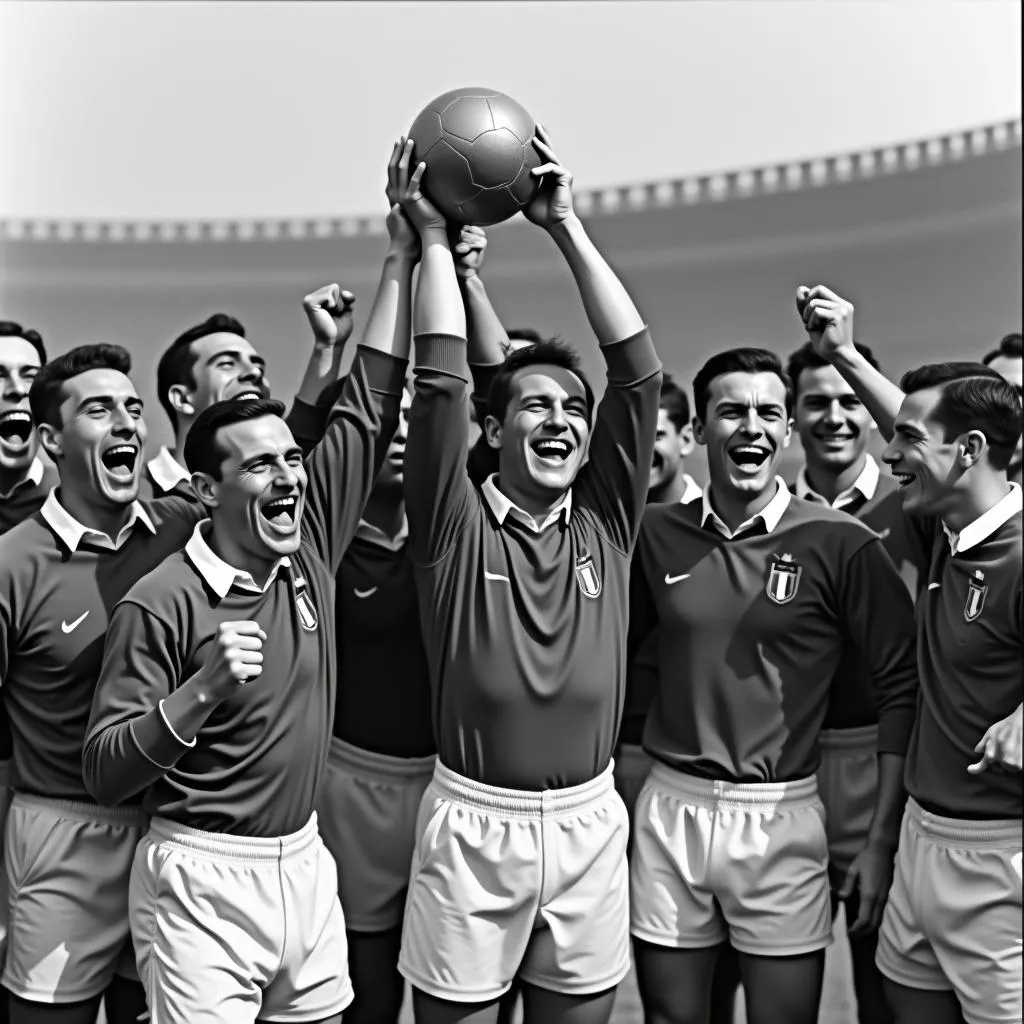The FIFA World Cup, a quadrennial spectacle that unites nations through the beautiful game, has crowned champions who have etched their names into footballing folklore. From the inaugural tournament in 1930 to the latest edition, the quest for the coveted trophy has witnessed moments of brilliance, heartbreak, and unparalleled drama. This journey through time explores the illustrious history of football world cup winners, celebrating their triumphs and legacies.
The Early Years: A European Dominance
The nascent years of the World Cup saw European teams stamp their authority on the global stage. Uruguay, the host nation, emerged victorious in the first edition, defeating Argentina in a thrilling final. The tournament then moved to Italy, where the hosts, led by the legendary Giuseppe Meazza, successfully defended their title in 1938.
Post-War Era: The Emergence of New Powerhouses
After a 12-year hiatus due to World War II, the tournament resumed in 1950 with Brazil hosting. Uruguay, however, spoiled the party, defeating the hosts in a dramatic final that went down as the “Maracanazo.” West Germany announced their arrival on the world stage in 1954, stunning Hungary in the final, a match etched in history as the “Miracle of Bern.”
The Pele Show and Brazil’s Golden Generation
The 1958 World Cup in Sweden witnessed the emergence of a 17-year-old phenomenon named Pele. The Brazilian prodigy led his nation to their first-ever World Cup title, a feat they repeated in 1962 and 1970, establishing Brazil as the dominant force in world football. Pele, with his mesmerizing skills and goal-scoring prowess, became a global icon and cemented his legacy as one of the greatest footballers of all time.
Total Football and the Dutch Masters
The 1970s saw the emergence of “Total Football,” a revolutionary tactical approach pioneered by the Dutch national team. Led by the visionary Johan Cruyff, the Netherlands reached consecutive finals in 1974 and 1978 but agonizingly fell short on both occasions. Despite the lack of silverware, the Dutch team’s influence on the sport was undeniable.
The Maradona Magic and Italy’s Resurgence
The 1986 World Cup in Mexico belonged to Diego Maradona. The Argentine maestro, with his mesmerizing dribbling skills and controversial “Hand of God” goal, single-handedly guided his team to glory. Italy, after a 44-year wait, regained the trophy in 1982, a testament to their tactical discipline and defensive resilience.
The Modern Era: A Global Game
The 1990s saw Germany reclaim their place at the pinnacle of world football, winning the 1990 World Cup in Italy. Brazil added another star to their jersey in 1994 and 2002, further solidifying their status as the most successful team in World Cup history. France, fueled by the brilliance of Zinedine Zidane, triumphed on home soil in 1998, while Spain’s tiki-taka dominance earned them their first World Cup title in 2010.
Recent Triumphs and Future Aspirations
Germany won their fourth World Cup title in 2014, showcasing their tactical discipline and clinical finishing. France, led by a new generation of stars, lifted the trophy in 2018, reaffirming their position as a global powerhouse.
Conclusion
The FIFA World Cup, with its rich history and legacy of champions, continues to captivate billions worldwide. From the legendary Pele to the magical Maradona, from the tactical brilliance of the Dutch to the recent dominance of Spain and Germany, the tournament has provided countless memories and inspired generations. As the world eagerly awaits the next edition, one thing is certain: the quest for footballing immortality will continue to produce stories of passion, drama, and unforgettable moments of brilliance.
FAQ
-
Which country has won the most World Cup titles?
Brazil holds the record with five World Cup titles.
-
Who was the youngest player to win the World Cup?
Pelé, at the age of 17, became the youngest player to win the World Cup in 1958.
-
Which country won the first-ever World Cup?
Uruguay won the inaugural FIFA World Cup in 1930.
-
When and where will the next World Cup be held?
The next FIFA World Cup will be held in 2026 in Canada, Mexico, and the United States.
-
What is the “Golden Boot” award given for in the World Cup?
The “Golden Boot” award is presented to the player who scores the most goals in a World Cup tournament.
For further inquiries or assistance, please contact our 24/7 customer service team at Phone Number: 0372999996, Email: bong.da@gmail.com or visit our address at 236 Cau Giay, Hanoi.

